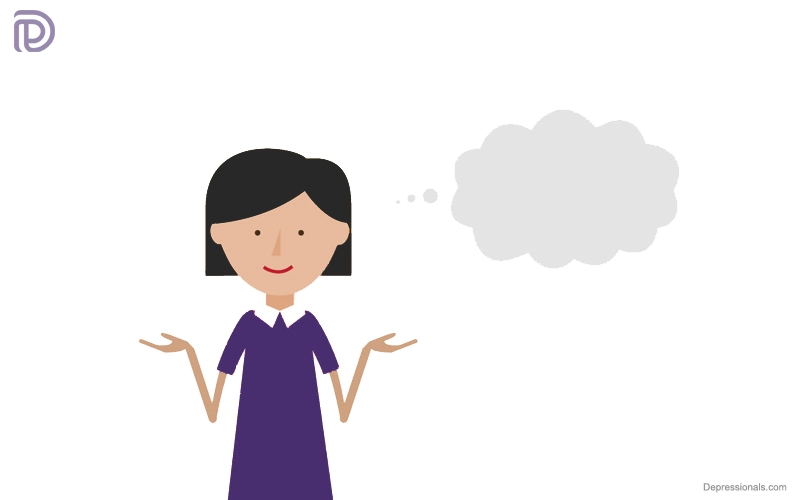An individual’s consciousness is defined as being aware of his or her individual thoughts, memories, emotions, sensations, and surroundings. Consciousness is essentially your ability to experience yourself and the world around you. Each person experiences the world in their own way. You are conscious of something when you can describe it in words.
Every moment of your conscious experience shifts and changes. For instance, you may be reading this article one moment. Suddenly, your mind turns to a conversation with a coworker you had earlier. Perhaps you are thinking about dinner, or maybe you notice how uncomfortable your chair is.
You experience this ever-changing stream of thoughts smoothly and without effort.
Read: Subconscious Mind
Types of consciousness
Several factors can affect consciousness and alter it. There are various types of these diseases; some are naturally occurring, and others can be caused by drug abuse or brain damage.
The shift in the conscious mind can also affect how you perceive the world, how you think, how you understand it, and how you interpret it.
There are various states of consciousness, including:
- Dreams
- Hallucinations
- Hypnosis
- Meditation
- Sleep
- States induced by psychoactive drugs
It is possible to be conscious and unconscious at the same time. Medical or mental conditions can also alter consciousness levels. This may be caused by impairment or change in awareness due to medical or mental conditions.
The following types of altered consciousness exist:
- Coma
- Confusion
- Delirium
- Disorientation
- Lethargy
- Stupor
The level of conscious mind may be measured and assessed in different ways by doctors and healthcare professionals. The results of these assessments can guide decision-making in the diagnosis and treatment process.
Read: Confabulation
Uses
It can be helpful for healthcare professionals to know how to spot the signs of someone experiencing a mental health issue by understanding different levels of consciousness.
Sometimes, changes in conscious mind are an indication that something is wrong, or that the situation is urgent.
Suddenly changing consciousness can indicate:
- Aneurysm
- Brain infections
- Brain tumor or injury
- Dementia or Alzheimer’s disease
- Drug use
- Epilepsy
- Heart disease
- Heatstroke
- Brain oxygen deprivation
- Low blood sugar
- Poisoning
- Shock
- Stroke
Seeking help when needed
Discuss your concerns with your doctor if you experience changes in consciousness. It is possible for sudden changes to be signs of an emergency (stroke, hemorrhage, etc.) that requires immediate attention.
You can prevent problems from getting worse by visiting your physician as soon as possible.
Read: Capgras Syndrome
History of consciousness
Human consciousness has been largely a subject of study by philosophers for thousands of years. According to French philosopher Rene Descartes, there is a concept of mind-body dualism or the notion that there exists an interaction between the mind and the body, although the two are separate.
The study of conscious experience became one of the first topics of study of early psychologists once psychology was established as a distinct scientific discipline from philosophy and biology.
The structuralists examined and recorded conscious experiences, sensations, and thoughts using a method known as introspection. Introspection consists of paying close attention to what is going on within yourself. While this process was extremely subjective, it inspired further research regarding the science of conscious mind.
Psychology professor William James likened consciousness to a river that flows unbroken and continuously. A major focus of Sigmund Freud’s work was to understand the relationship between the unconscious and conscious.
Since the 1950s, research into human consciousness has grown exponentially. Throughout the first half of the 20th century, much of the attention in psychology focused on observable behaviors.
Read: Coronavirus and Your Mental Health
Theories of consciousness
The study of consciousness has a number of problems, including the lack of uniformly accepted operational definitions. According to Descartes, thinking demonstrates one’s existence and consciousness, in an idea he called cogito ergo sum (“I think, therefore I am”). There remains debate about the different aspects of consciousness, despite today’s general definition of it as having an awareness of yourself and the world.
The neuroscience of consciousness has been studied in order to understand our conscious experiences. It has even been possible for scientists to scan the brain to search for specific neurons associated with conscious experiences. The integrated information theory and the global workspace theory are two major theories of the conscious mind being proposed by modern researchers.
Integrated information theory
Consciousness is viewed through the lens of the physical processes underpinning it. This approach is designed to provide a measure of the combined information that makes up the conscious mind. The level of integration determines the quality of consciousness in an organism.
According to this theory, consciousness refers to whether or not something is conscious.
Global workspace theory
Our brains create conscious awareness by drawing information from a memory bank. Global workspace theory, however, offers a broader understanding of how consciousness functions than integrated information theory.
Read: How to Avoid Alzheimer Disease
Bottom line
Philosophers and scientists have been fascinated by consciousness for thousands of years, but there is still much to learn about the concept. Scientists continue to investigate our conscious awareness from a variety of different perspectives including psychological, social, cultural and physical determinants.





